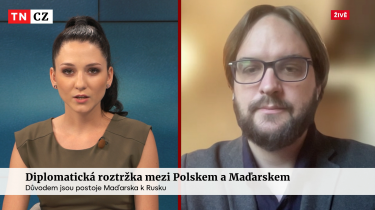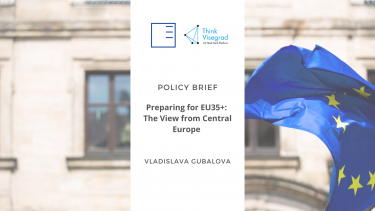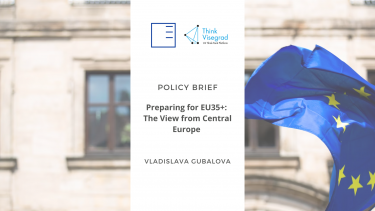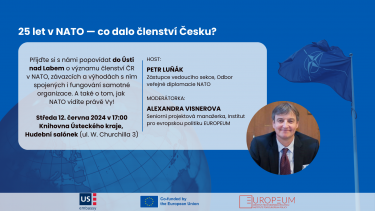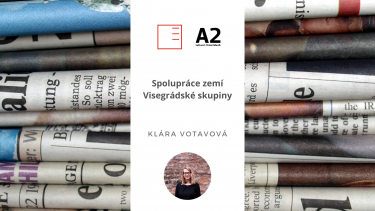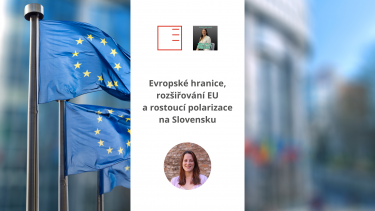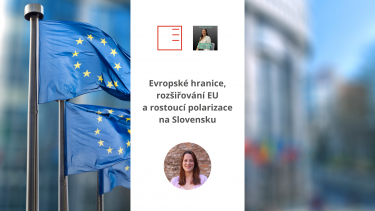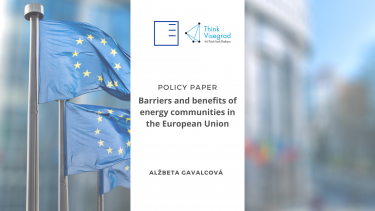TN.cz | Rift between Hungary and Poland. Reason being Orbán's relationship with Putin
A diplomatic rift has erupted between Budapest and Warsaw over the different attitudes of the two countries towards Russia. First, Hungarian Prime Minister Viktor Orbán branded Poland as the country with the most hypocritical policy in Europe, while the Poles hit back by pointing out the close relations Orbán maintains with Russian President Putin. The media are also talking about the possible end of the V4 group. EUROPEUM Institute researcher Vít Havelka spoke more about the dispute in an interview with TN.cz.
Zjistit více
TN.cz | Roztržka mezi Maďarskem a Polskem. Důvodem je vztah Orbána s Putinem
Mezi Budapeští a Varšavou začala diplomatická roztržka kvůli rozdílnému postoji obou zemí vůči Rusku. Nejprve maďarský premiér Viktor Orbán označil Polsko za zemi s nejvíce pokryteckou politikou v Evropě, Poláci vzápětí úder vrátili upozorněním na blízké vztahy s ruským prezidentem Putinem, které Orbán udržuje. Média mluví i o možném konci skupiny V4. Více o sporu mluvil v rozhovoru pro TN.cz výzkumník Institutu EUROPEUM Vít Havelka.
Zjistit více
Policy Brief | Preparing for EU35+: The View from Central Europe
Despite the historical support of EU enlargement policy by the Visegrad Four (V4), these Central European states are now faced with the challenge of reconciling their stances with the new realities of the process. As Ukraine and Moldova opened their accession negotiations, the EU seems to be torn on the questions associated with the future enlargement(s) - institutional reforms and changes within the EU budget. Transitioning from economic beneficiaries to potential contributors, the V4 states must evaluate the potential political and economic impacts of new members on both the EU and their domestic levels. Writes and proposes recommendations Vladislava Gubalova from GLOBSEC.
Zjistit vícePolicy Brief | Příprava na EU35+: Pohled ze střední Evropy
Navzdory historické podpoře politiky rozšiřování EU ze strany zemí Visegrádské čtyřky stojí tyto středoevropské státy před výzvou, jak sladit své postoje s novou realitou tohoto procesu. Vzhledem k tomu, že Ukrajina a Moldavsko zahájily přístupová jednání, je EU rozpolcena v otázkách spojených s budoucím rozšířením - institucionálními reformami a změnami v rámci rozpočtu EU. Při přechodu od ekonomických příjemců k potenciálním přispěvatelům musí státy V4 vyhodnotit potenciální politické a ekonomické dopady nových členů jak na EU, tak na své domácí úrovni. Píše Vladislava Gubalová z GLOBSEC.
Zjistit víceDebate: 25 years in NATO - what has membership given to the Czech Republic?
We invite you to the second regional debate within the 25th anniversary of the Czech Republic's accession to NATO! Membership has brought benefits to the Czech Republic, but it also comes with a number of obligations. What is the importance of this alliance for us? And what do you think about NATO? Come to Ústí nad Labem to discuss these and other questions.
Zjistit více
Debata: 25 let v NATO - co členství dalo Česku?
Zveme vás na již druhou regionální debatu v rámci 25. výročí vstupu České republiky do NATO! Členství přineslo Česku výhody, je ale zároveň spojené s řadou závazků. Jaký význam má pro nás tato aliance? A co si o NATO myslíte vy? Přijďte si s námi o těchto a dalších otázkách popovídat i do Ústí nad Labem.
Zjistit více
A2 | Spolupráce zemí Visegrádské skupiny
Spolupráce zemí Visegrádské skupiny závisí na politické situaci jednotlivých států. V posledních letech na sebe aliance upozornila kritikou států jižní Evropy a antimigrantskou rétorikou. Svůj komentář pro deník A2 sepsala Klára Votavová, výzkumná pracovnice Institutu EUROPEUM.
Zjistit víceTimpul Prezent | European borders, EU enlargement and growing polarization in Slovakia
What are the borders of Europe and how do they coincide with the borders of the European Union? What are the prospects for EU enlargement towards the Western Balkans and the former Soviet states? These questions are addressed by Jana Juzová, senior researcher at EUROPEUM Institute for the Timpul Prezent podcast. She also discussed the consequences of the recent attack on Slovak Prime Minister Robert Fico and highlighted the growing polarization of Slovak society and the potential threat to media independence.
Zjistit víceTimpul Prezent | Evropské hranice, rozšiřování EU a rostoucí polarizace na Slovensku
Jaké jsou hranice Evropy a jak se shodují s hranicemi Evropské unie? Jaké jsou vyhlídky na rozšíření EU směrem na západní Balkán a do bývalých sovětských států? Těmito otázkami se v podcastu rumunského veřejnoprávního rádia zabývá Jana Juzová, seniorní výzkumnice Institutu EUROPEUM. V podcastu Timpul Prezent se také zabývala důsledky nedávného útoku na slovenského premiéra Roberta Fica a upozornila na rostoucí polarizaci slovenské společnosti a potenciální ohrožení nezávislosti médií.
Zjistit vícePolicy Paper | Barriers and benefits of energy communities in the European Union
Energy communities are an effective means to decentralize and renew our energy systems with sustainable solutions as they are usually based on renewable energy. They have already started emerging in 1970´s, yet there has been a significant increase in their development only in recent years, also in terms of their introduction into the EU legislation. Especially in Western and Northern European countries the concept already enjoys vast popularity. On the other hand, in Central and Eastern European countries (further referred to as CEE) energy communities are only beginning to emerge. The policy brief (based on literature and interviews with various stakeholders ) examines the benefits energy communities may bring, and more importantly, the main obstacles remaining in their way for greater evolution in the CEE region – and especially Visegrad countries (V4). As these initiatives progress, sharing the best practices will ensure the success of the community energy in the energy transition. Writes Alžbeta Gavalcová.
Zjistit víceStaroměstské náměstí 4/1
Praha 1 - Staré Město
110 00
tel.: +420 212 246 552
email: europeum@europeum.org
https://www.europeum.org
